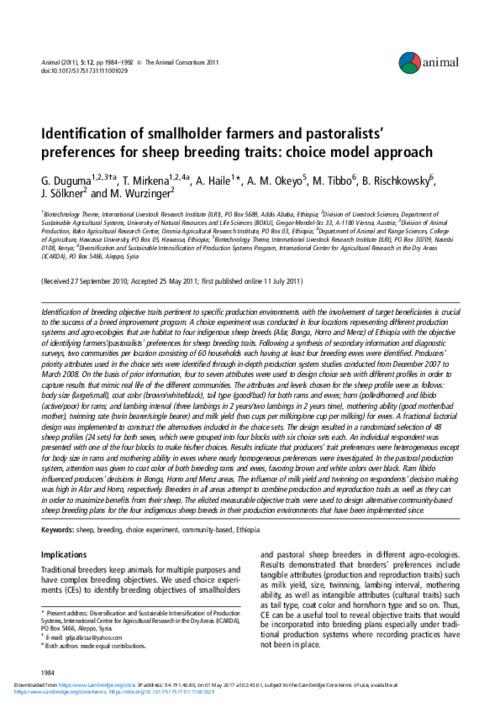
Scientific Publication
Identification of smallholder farmers and pastoralists’ preferences for sheep breeding traits: choice model approach
Gemeda Duguma, Tadele Mirkena, Aynalem Haile, Ally Okeyo Mwai, Markos Tibbo, Barbara Rischkowsky, Johann Sölkner, Maria Wurzinger. (1/12/2020). Identification of smallholder farmers and pastoralists’ preferences for sheep breeding traits: choice model approach. animal, 5 (12), pp. 1984-1992